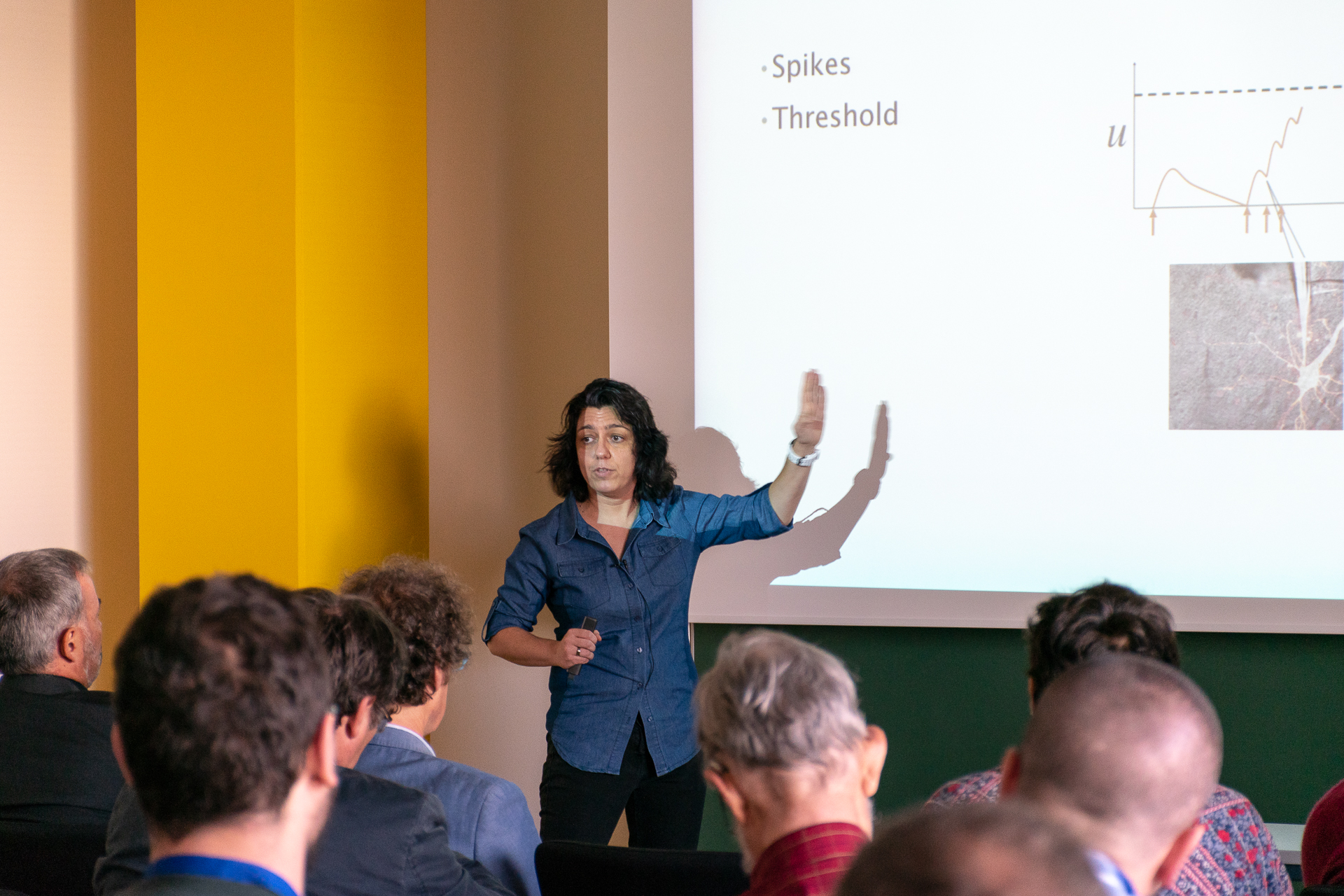Tuesday, May 8th
|
|
Morning Session Session Topic: Quantum Dots
|
| 08:30 – 09:00 |
Registration |
| 09:00 – 09:10 |
David SÁNCHEZ, University of the Balearic Islands
Opening Remarks |
| 09:10 – 10:10 |
Heiner LINKE, University of Lund
Tutorial: Quantum-dot heat engines |
| 10:10 – 10:30 |
Coffee Break & Poster Session |
| 10:30 – 11:00 |
Rosa LOPEZ, University of the Balearic Islands
Dynamical Coulomb blockade of thermal transport |
| 11:10 – 11:40 |
Yigal MEIR, Ben Gurion University
How to measure the entropy of a mesoscopic system |
| 12:00 – 13:30 |
Lunch & Poster Session |
|
Afternoon Session Session Topic: Mesoscopics
|
| 13:30 – 14:00 |
Andrew KELLER, Caltech
Universal Fermi liquid crossover and quantum criticality in a mesoscopic system |
| 14:10 – 14:40 |
Gianluca RASTELLI, University of Konstanz
Quantum phase transition with dissipative frustration |
| 14:40 – 15:00 |
Coffee Break & Poster Session |
| 15:00 – 16:00 |
Liliana ARRACHEA, Buenos Aires University
Tutorial: Quantum charge and energy transport in mesoscopic systems and topological nanostructures |
| 16:00 – 16:20 |
Coffee Break & Poster Session |
| 16:20 – 16:50 |
Janine SPLETTSTÖSSER, Chalmers University
Thermoelectrics of interacting nanosystems - Exploiting fermion-parity superselection instead of time-reversal symmetry |
| 17:00 – 17:30 |
Robert WHITNEY, CNRS Grenoble
Non-Markovian quantum thermodynamics: laws and fluctuation theorems |
Wednesday, May 9th
|
|
Morning Session Session Topic: Cold atoms and quantum dots
|
| 10:00 – 11:00 |
Jean-Philippe BRANTUT, Lausanne
Tutorial: Transport measurements with cold atoms |
| 11:10 – 11:40 |
Dario POLETTI, Singapore
Many-body open quantum systems: transport and localization |
| 11:40 – 12:00 |
Coffee Break & Poster Session |
| 12:00 – 12:30 |
Florencia LUDOVICO, SISSA Trieste
Probing the energy reactance with adiabatically driven quantum dots |
| 12:40 – 15:00 |
Lunch Break & Poster Session |
|
Afternoon Session Session Topic: Heat and Thermoelectrics
|
| 15:00 – 16:00 |
Giuliano BENENTI, University of Insubria
Tutorial: Power-efficiency trade-off in thermoelectricity: From scattering theory to interacting systems |
| 16:10 – 16:40 |
Tomaz PROSEN, University of Ljubljana
Many-body Quantum Chaos: Analytic connections to Random Matrix Theory |
| 16:40 – 17:00 |
Coffee Break & Poster Session |
| 17:00 – 17:30 |
Rosario FAZIO, ICTP Trieste
Thermal drag |
| 17:40 – 18:40 |
QTTS Society Meeting |
Thursday, May 10th
|
|
Morning Session Session Topic: Strongly Correlated Systems
|
| 09:00 – 10:00 |
Thierry GIAMARCHI, University of Geneva
Tutorial: Transport in one dimensional quantum systems |
| 10:10 – 10:40 |
Dries SELS, Boston University
Minimizing losses by variational counter-diabatic driving |
| 10:40 – 11:00 |
Coffee Break & Poster Session |
| 11:00 – 11:30 |
Julia MEYER, CEA Grenoble
Non-equilibrium quasi-particles in disordered superconductors |
| 11:40 – 12:10 |
Peter SAMUELSSON, University of Lund
Nanoscale Quantum Calorimetry with Electronic Temperature Fluctuations |
| 12:30 – 13:30 |
Lunch Break & Poster Session |
|
Afternoon Session Session Topic: Heat, Work and Dissipation
|
| 13:30 – 14:30 |
Andrew JORDAN, University of Rochester
Tutorial: Charge and Heat transport in mesoscopic conductors: How to build an engine |
| 14:40 – 15:10 |
Peter TALKNER, University of Augsburg
Role of work in matter exchange between finite quantum systems |
| 15:20 – 15:50 |
Stefan KEHREIN, University of Göttingen
Irreversibility in closed quantum-many body systems |
| 15:50 – 16:10 |
Coffee Break & Poster Session |
| 16:10 – 16:40 |
Mauro PATERNOSTRO, Queen’s University of Belfast
Irreversible entropy production in non-equilibrium quantum processes |
| 16:50 – 17:20 |
Radim FILIP, Palacky University Olomouc
Work and information from thermal states after subtraction of energy quanta |
Friday, May 11th
|
|
Morning Session Session Topic: Superconductivity and Fluctuations
|
| 09:00 – 10:00 |
Francesco GIAZOTTO, SNS Pisa
Tutorial: Superconductivity: The coherence in thermal transport |
| 10:00 – 10:20 |
Coffee Break |
| 10:20 – 10:50 |
Adeline CREPIEUX, University of Marseille
Emission noise in an interacting quantum dot: Role of inelastic scattering and asymmetric coupling to the reservoirs |
| 11:00 – 11:30 |
Bayan KARIMI, Aalto University
Detecting heat current noise by a non-invasive electron thermometer |
| 11:30 – 11:50 |
Jairo SINOVA, University of Mainz
Closing Remarks |
| 12:00 – 13:30 |
Lunch |









































